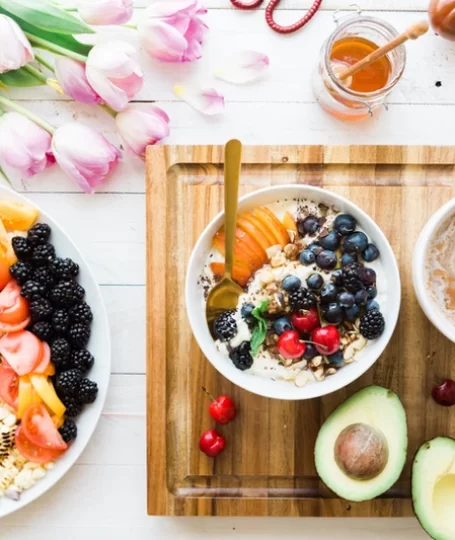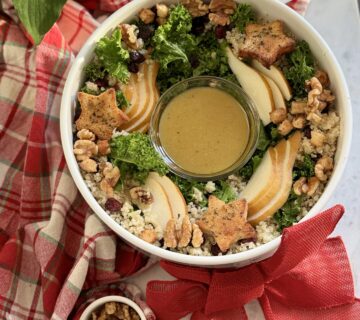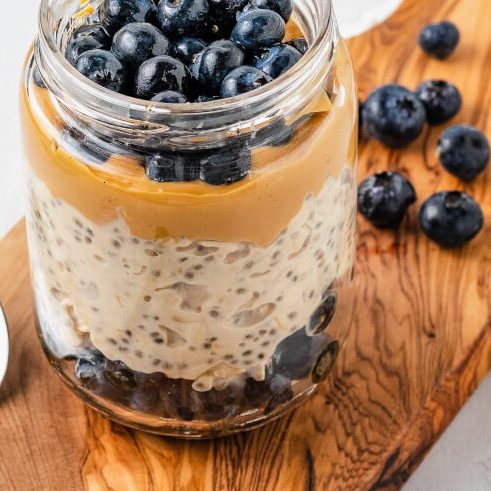Irritable Bowel Syndrome (IBS) is a debilitating chronic disease that affects approximately 11% of the population globally. The condition is characterized by abdominal pain, altered bowel habits, which include diarrhea, constipation or both. In addition to this, IBS sufferers also typically experience uncomfortable (and embarrassing), gas, bloating and/or distention, which can cause emotional distress! Statistically, those with IBS also unfortunately spend more days in bed, miss more work days and have more doctor’s visits than those without the condition. Luckily, there is evidence to indicate that dietary modification and lifestyle choices may help relieve IBS flare ups. In a study published in Nature reviews: Gastroenterology & Hepatology, MRI studies have shown that certain fermentable carbohydrates contribute to increased intestinal water content and colonic hydrogen, which produce the common IBS symptoms.
There is growing evidence to support that the temporary restriction of certain fermentable carbohydrates, known as Fermentable Oligo-Di-Mono-Saccharides and Polyols (FODMAP’s) is helpful to reduce IBS symptoms. Due to the diet’s effectiveness observed in clinical practice, I recommend limiting these fermentable foods under the supervision of a dietitian or physician. Although the restrictive phase of the diet is meant to last only 2-6 weeks, it is especially important to be monitored by a health professional who can deliver a comprehensive evaluation of individual food tolerances, preserve gut microflora while assuring your nutritional needs are being met. Once the restriction period has been completed, the re-introduction phase, which lasts 6-8 weeks, can help IBS suffers identify the foods that illicit adverse symptoms. I recommend IBS sufferers download Monash University’s FODMAP Diet App, which is a user-friendly application that helps to navigate through which foods to limit and others to enjoy while on the diet (See list of FODMAP’s in Table. 1). It is also advised that individuals suffering from uncomfortable IBS symptoms reduce their dietary fat intake (listed in Table 1.). It has been theorized that patients suffering from IBS may have intestinal hypersensitivity after eating excessively greasy foods and may experience gas or bloating as a result of delayed intestinal transit1 (i.e., the fatty food is moving extremely slowly through the gut!).
In a study published in the American Journal of Gastroenterology, researchers found that high alcohol intake was associated with loose bowel movements and that binge drinking was strongly associated with diarrhea, stomach pain, and indigestion among those with IBS. For these reasons, alcohol should be limited while attempting to decrease IBS symptoms. Caffeine has also been shown to produce a laxative-like effect in susceptible individuals with IBS and healthy subjects alike5. Due to a lack of clinical consensus surrounding the difference in symptoms among healthy controls and IBS patients, caffeine tolerance should be assessed on an individual basis.
In conclusion, IBS is best treated through a series of dietary exclusions followed by re-introductions to assess individual tolerance with the supervision of a dietitian. Start with a food journal to track food intake, note IBS symptoms experienced and discuss the findings with a dietitian who can guide you towards achieving IBS symptom relief.
Table 1.
Foods/Drinks to Limit in order to Relive IBS Symptoms
1. FODMAPS: apples, honey, high fructose corn syrup, wheat, rye, legumes, lentils, onions, garlic, lactose containing foods (ice cream, milk, cheese, etc.), asparagus, avocados, mushrooms and artificial sugars.
2. Greasy/Fatty Foods, such as fast-food, packaged chips, pizza, fried foods, sausage, pastries, etc.
3. Alcohol & Caffeine

#IBS #digestivehealth #RDTips #Nutrition #wellness #health #nutritionfacts #lifestyle #nutritiontips #healthcareprofessionals #irritablebowelsyndrome #gastrointerologist
References
1. Müller-Lissner S. Epidemiology of Irritable Bowel Syndrome. Irritable Bowel Syndrome. 2013:23-36. doi:10.1002/9781118444689.ch2.
2. Staudacher HM, Irving PM, Lomer MCE, Whelan K. Mechanisms and efficacy of dietary FODMAP restriction in IBS. Nature Reviews Gastroenterology & Hepatology. 2014;11(4):256-266. doi:10.1038/nrgastro.2013.259.
3. Hungin APS, Whorwell PJ, Tack J, Mearin F. The prevalence, patterns and impact of irritable bowel syndrome: an international survey of 40 000 subjects. Alimentary Pharmacology and Therapeutics. 2003;17(5):643-650. doi:10.1046/j.1365-2036.2003.01456.x.
4. Reding KW, Cain KC, Jarrett ME, Eugenio MD, Heitkemper MM. Relationship Between Patterns of Alcohol Consumption and Gastrointestinal Symptoms Among Patients With Irritable Bowel Syndrome. The American Journal of Gastroenterology. 2013;108(2):270-276. doi:10.1038/ajg.2012.414
5. Cozma-Petruţ A, Loghin F, Miere D, Dumitraşcu DL. Diet in irritable bowel syndrome: What to recommend, not what to forbid to patients! World Journal of Gastroenterology. 2017;23(21):3771. doi:10.3748/wjg.v23.i21.3771.





No comment